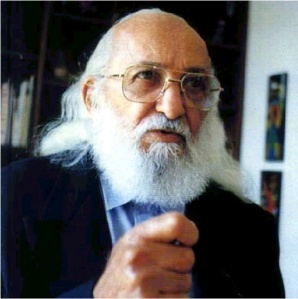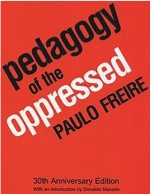by Paul Penkal
Underlining his belief in the potential of all learners, Paulo Freire wrote, “Intelligence is created, is constructed, it is not received.” Certainly one of the most influential figures in educational reform to emerge from Brazil, Freire was born in Recife on September 19th, 1921. He attended the University of Recife, studying Law. After school he became a Portuguese teacher in secondary schools instead of pursuing a career in Law. Eventually he was appointed the Director of the Department of Education and Culture of the Social Service in Pernambuco. Joe L. Kincheloe once wrote,“I suppose Paulo Freire is the closest thing education has to a celebrity.” During the Military Coup D’Etat of 1964 Freire was arrested and jailed for 70 days as a consequence of his methods for developing literacy and his instigating the people to demand change. Following this jail sentence, Freire was exiled for 15 years. He went to Bolivia and worked for five years for the Christian Democratic Agrarian Reform movement and the Food and Agriculture Organization for the United Nations. This allowed him to research and focus on writing. His most famous work is the 1968 Pedogogy of the Oppressed. The book underlines how issues of power play out in educational contexts, and the relationship between “the colonizer and the colonized.” His exile from Brazil ended in 1979, and he returned in 1980 after 16 years. He joined the Workers’ Party in Sao Paulo where he acted as a supervisor for its adult literacy project. Freire was appointed Secretary of Education for Sao Paulo in 1988. He died on May 2nd, 1997 and is remembered as one of the most transformative figures in education.
“The greatest humanistic and historical task of the oppressed: to liberate themselves…” — Paulo Freire.

